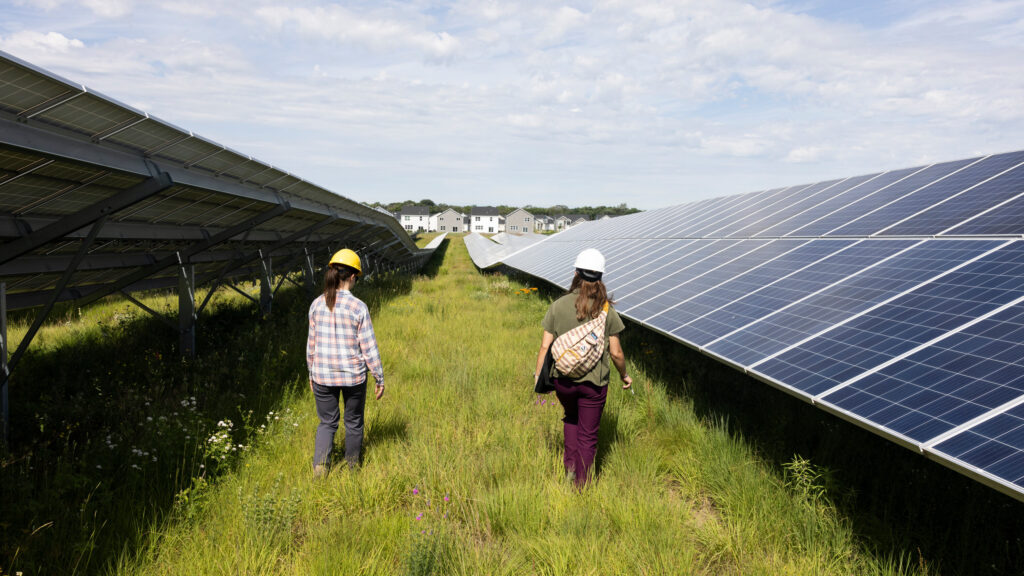In a significant development that underscores the complex and often contentious landscape of energy policy, a handful of influential Republican senators have taken a bold stand against the administration’s proposed changes to crucial renewable energy tax credits. Their actions, which include placing holds on key Treasury Department nominees, highlight deep-seated concerns about the future of wind and solar projects across the United States. This standoff is more than just a political maneuver; it represents a critical battle for the stability and growth of the clean energy sector, with far-reaching implications for our nation’s sustainable future.
The core of this dispute revolves around the interpretation and implementation of tax credits vital for the economic viability of wind and solar energy. For years, these incentives have served as cornerstones, driving investment, fostering innovation, and enabling the rapid expansion of renewable energy infrastructure. However, recent legislative changes, particularly those introduced by the “One Big Beautiful Bill Act,” have already set a course for an earlier phase-out of these subsidies. While this bill included a crucial 12-month transition period tied to when projects “begin construction,” the administration’s subsequent directive to the Treasury Department threatens to undermine this carefully negotiated compromise.
At the forefront of this pushback are Senator Chuck Grassley of Iowa and Senator John Curtis of Utah. Both hail from states that have significantly embraced renewable energy, with Iowa, for instance, generating over 60% of its electricity from wind power. Their resolve stems from a clear understanding of the economic stakes involved for their constituents and the broader clean energy industry. They argue that the administration’s proposed alterations to the long-established “safe harbor” provision—which traditionally considers a project to have “begun construction” after just 5% of its costs are incurred—deviate sharply from existing Treasury guidance and, more importantly, from explicit congressional intent.
The senators’ holds specifically target three Treasury Department nominees: Brian Morrissey, nominated for general counsel; Francis Brooke, for assistant secretary; and Jonathan McKernan, for undersecretary. This strategic move leverages Senate rules, allowing a single senator to delay a nominee’s confirmation, thereby creating significant leverage to compel the administration to address their concerns. Senator Grassley, in a statement published in the Congressional Record, made it unequivocally clear that he would continue to object to these nominations until he could be certain that the new tax credit rules would adhere strictly to both the letter and the spirit of the law.
The administration’s directive, reportedly a commitment made to conservative Republicans, aims to tighten the “safe harbor” definition, requiring a “substantial portion” of a facility to be built before qualifying for the credits. This shift, if implemented as aggressively as some fear, could severely disrupt projects already in the pipeline and deter future investments. The renewable energy industry thrives on regulatory certainty, and any sudden or drastic changes to established rules can create immense financial risk, making projects less attractive to investors and developers.
The implications of this standoff extend far beyond the immediate political arena. Renewable energy tax credits have been instrumental in making clean energy competitive with traditional fossil fuels, driving down costs, and stimulating job growth across the nation. Curtailing these incentives prematurely or unpredictably could lead to higher electricity costs for consumers, slow the pace of decarbonization, and jeopardize the thousands of jobs created within the wind and solar sectors. Industry associations have voiced strong concerns, emphasizing that such policy instability could derail America’s progress toward energy independence and a sustainable future.
As the Treasury Department approaches its August 18 deadline to issue new rules, the tension remains palpable. The outcome of this standoff will not only determine the fate of these specific nominees but, more critically, will signal the administration’s true commitment to a diverse energy portfolio that includes robust support for renewable sources. For more insights into the ongoing efforts to champion climate action and sustainable policies, you can explore resources like those found at https://sustainableactionnow.org/category/climate/. The actions of these senators serve as a powerful reminder that even amidst broader policy shifts, dedicated advocates can still fight to ensure that sustainable progress remains a national priority.


